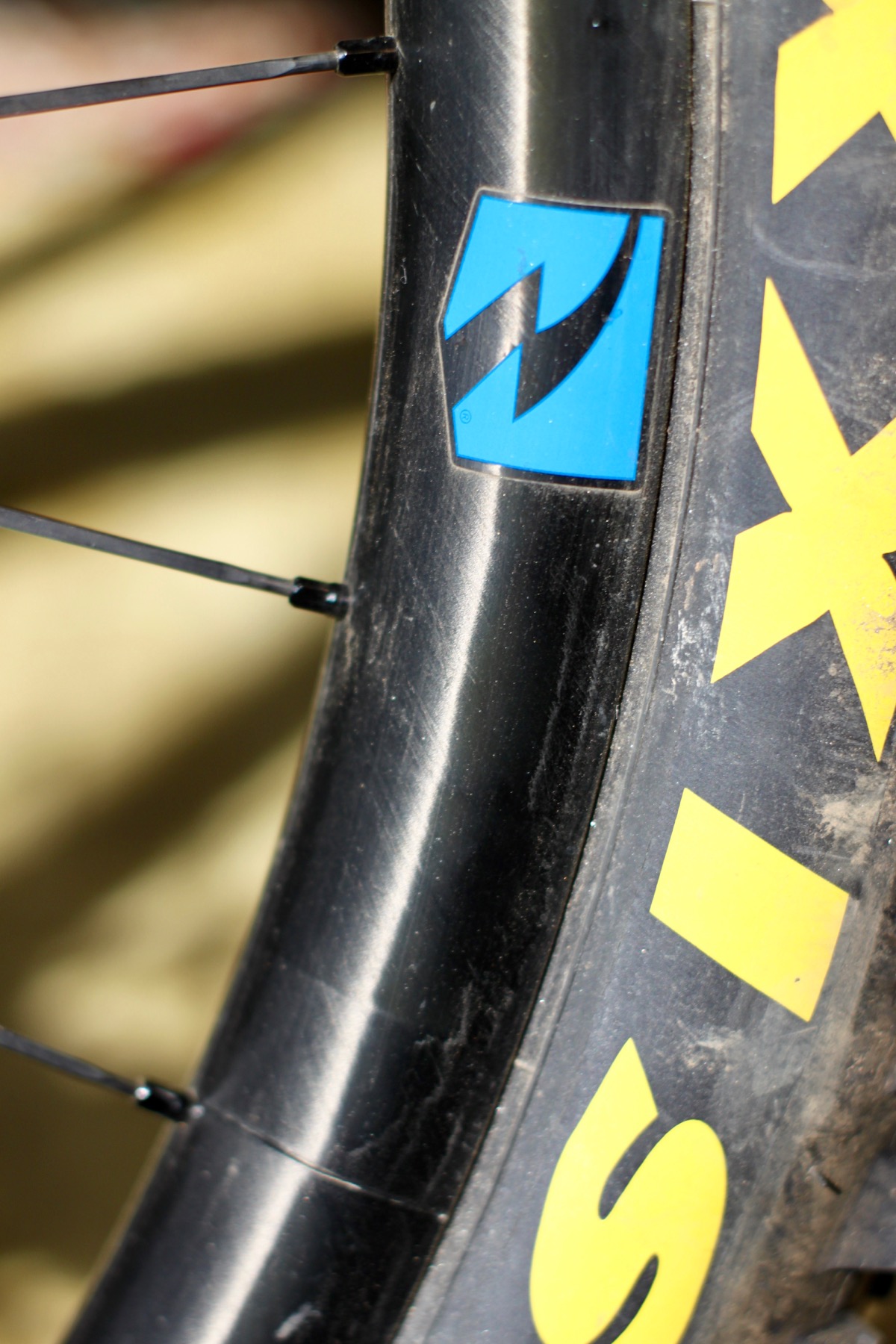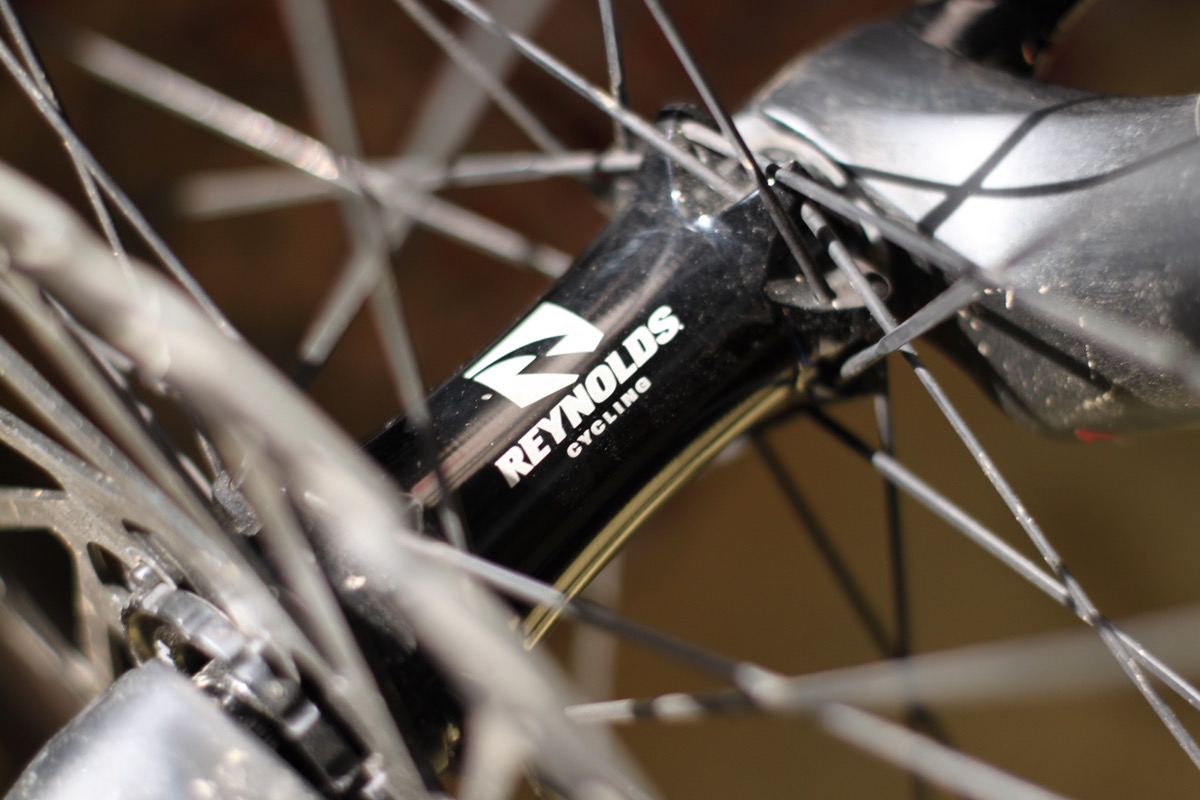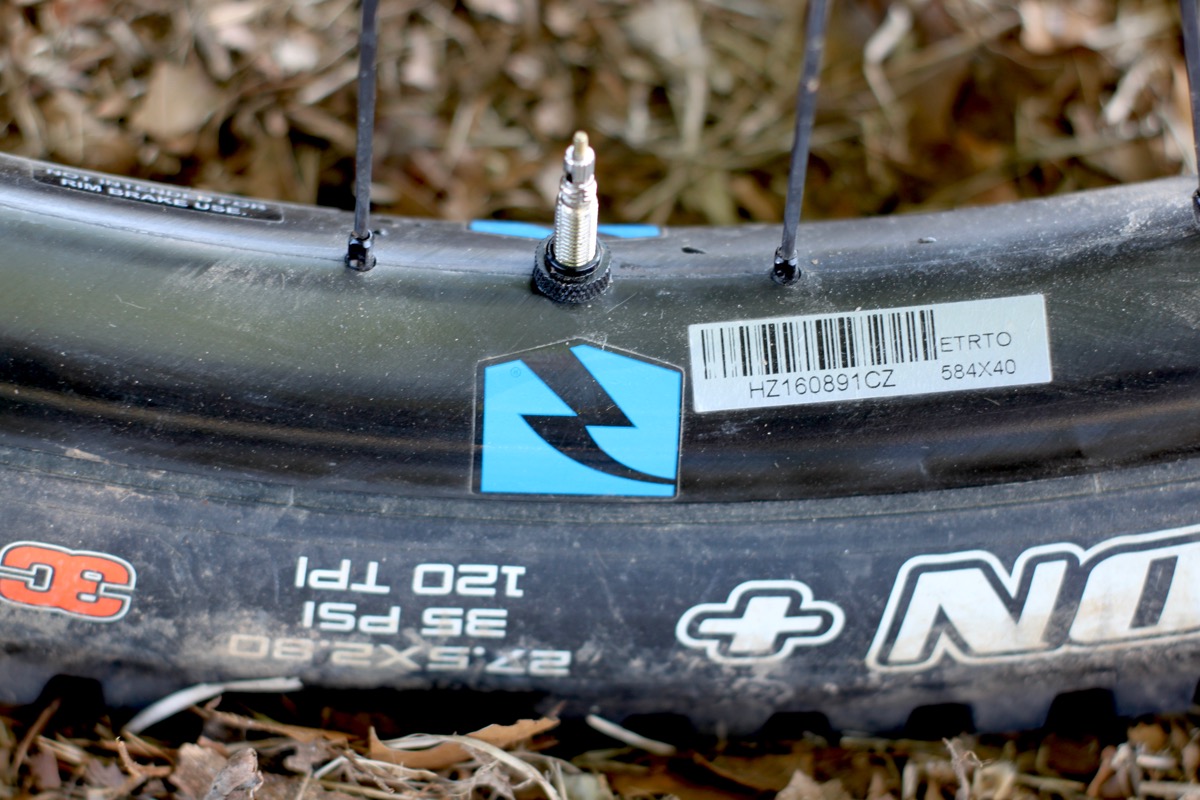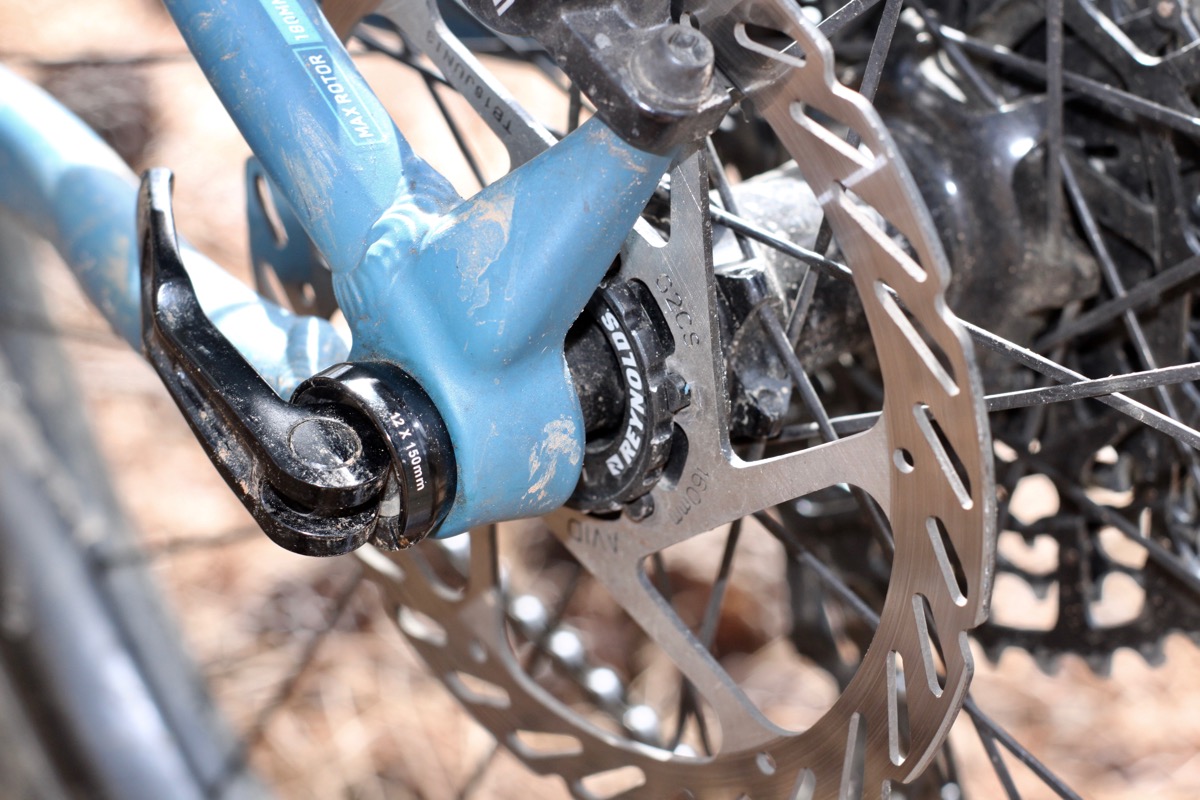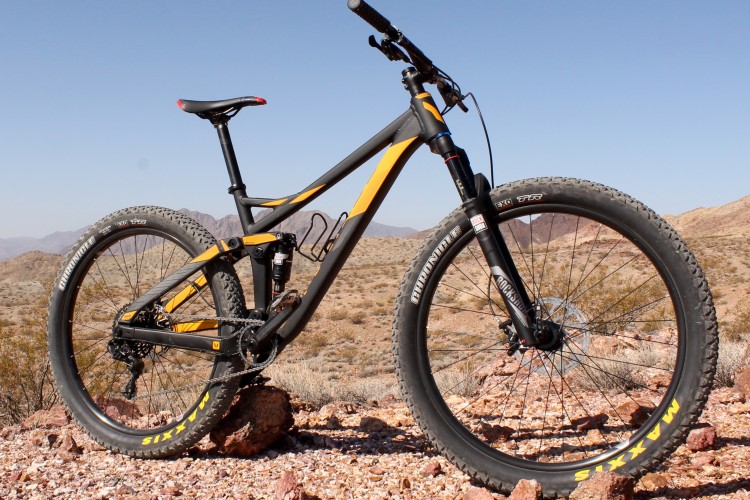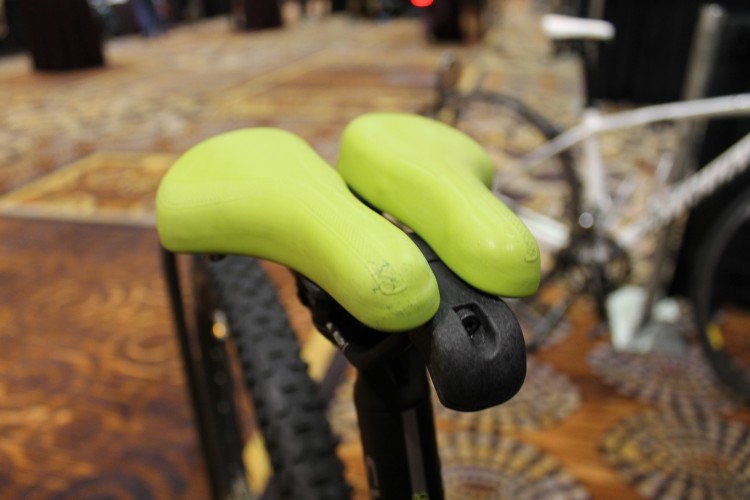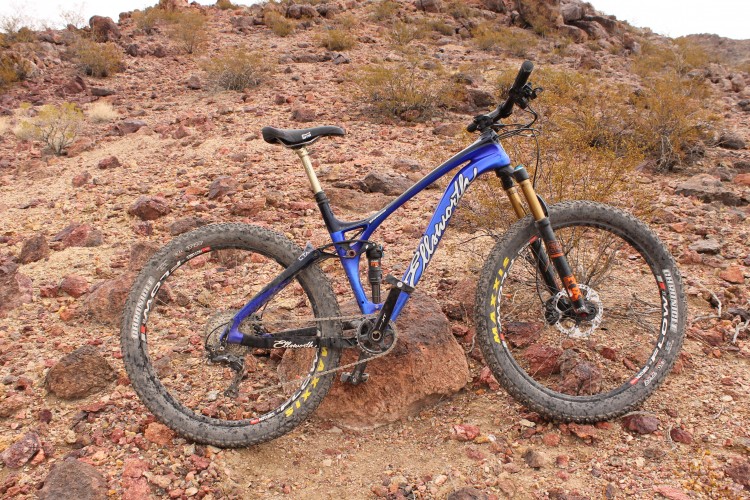
Over the past few years, 27.5+ wheels have come a long way from a DIY conversion project to a full-fledged, standalone wheel standard embraced by nearly every wheel manufacturer on the planet. In the intervening years, companies like Reynolds have tweaked and dialed specs to maximize performance benefits while minimizing the weight penalty. After testing Reynolds’ carbon BLACKLABEL 27.5 Plus wheels over the past couple months, I can confirm that these particular plus wheels are indeed dialed.
Materials
Reynolds is laser-focused on building high-end, lightweight, and durable mountain bike wheels, and the fact that the company’s MTB lineup features only carbon rims shows just how committed they are to carbon fiber. The entire BLACKLABEL mountain bike line uses the company’s proprietary Mountain Rim 5 (MR5) technology. Essentially MR5 means the rims utilize different carbon materials and layup designs in five areas within the rim, including the sidewall, spoke face, tire channel, nipple bed, and the hookless rim bead.
The rims are laced to 28 bladed spokes, front and rear, laced in a 3-cross pattern. Reynolds uses Industry 9 Torch hubs in these wheels, boasting excellent 3-degree engagement with renowned durability and quality. The full wheelset is claimed to weigh 1795g.
Design and construction
The Reynolds BLACKLABEL 27.5 Plus rims are asymmetrical and feature a hookless rim bead. Hookless rim beads have really taken off in the past couple of years, particularly when it comes to carbon fiber rims. Eliminating the hook is said to improve durability and reduce weight and manufacturing costs, without increasing tire burps or blow-offs. In fact, some manufacturers claim blow-offs are even reduced with a hookless design. I didn’t personally experience a single blow-off or burp during my own testing running Maxxis Ikon+ and Rekon+ 2.8-inch tires.
The rims are spaced at 40mm internally, which seems to be a happy medium in terms of where plus-sized rims are being specced. I tested some early plus rims–the WTB Scrapers–a couple years ago, which were spaced at 45mm internally. Based on my experience with those rims, 45mm is a bit too wide and gives most tires a squarish profile as opposed to a more natural, rounded one.
It should go without saying that these wheels are designed to be run tubeless, and the latest version (tested) features Boost spacing front and rear.
Before hitting the trail, I aired up a Maxxis Rekon+ 2.8-inch tire on the front and a Maxxis Ikon+ 2.8-inch tire in the rear. I wasn’t able to mount tires to the BLACKLABEL 27.5 Plus rims with a floor pump–not even close. However, after using a little soapy water and my air compressor, I was eventually able to mount the tires tubelessly. Overall I would say it took a slightly above average amount of frustration to mount tires to the rim.
I decided to mount these tires to the Niner JET 9 I reviewed back in March since the bike is marketed as being convertible to plus. The JET 9 features SRAM, 6-bolt rotors while the Industry 9 hubs on the Reynolds BLACKLABEL wheels utilize a Centerlock connection. Fortunately Reynolds includes Centerlock adapters in the box, and they worked great for me. Aaron mentioned needing to use spacers to get the Centerlock adapters to work for him, but I found them to work just fine out of the box.
[see_also id=”210441″][/see_also]
All told, swapping the stock 29er wheels on the Niner for the Reynolds BLACKLABEL 27.5 Plus wheels dropped a full pound off the weight of the bike. Of course the BLACKLABEL wheels cost as much as the stock JET 9 alloy bike ($2,600) so don’t expect to see a build like this from Niner anytime soon.
On the Trail
Plus tires are designed to be run at lower pressures than their skinnier counterparts, and for those who ride like me, lower pressures generally translate into more frequent rim dings. Thanks to the BLACKLABEL rims’ hookless design, these rims are strong enough to take those hits with minimal damage. In fact, even after countless wince-inducing rim dings during my test, there is zero visible damage to the rims.

Through techy sections and high speed corners, the BLACKLABEL 27.5 Plus wheels feel stiffer than any wheels I’ve ever tested. Laterally, the wheels are stiff and true through corners and respond instantly to sideways flicks. It’s a bit more difficult to evaluate vertical wheel compliance on a mountain bike since suspension and tires do most of the bouncing on their own, but on those rare occasions when I felt the rim make direct contact with a rock or root, it was clear the rims barely deflected. This stiffness served to keep the spokes evenly tensioned and the overall wheel true during my testing without any adjustments or repairs.
On my personal bike I run 45mm internally spaced rims, so the 40mm BLACKLABEL 27.5 Plus rims provided a good comparison. I found the 40mm spacing gave my test tires a more rounded shape, which translated into excellent cornering thanks to the ability to use the cornering knobs as they were intended.
The Industry 9 hubs performed flawlessly (I have these on my own plus wheels), though be forewarned that they are buzzy and loud. The overall low weight of the BLACKLABEL 27.5 Plus wheels proved to be truly transformative on my test bike. Sure, the JET 9 is still heavy and is designed to be a budget bike, but eliminating so much rotational weight really moved this bike from good to great. Getting off the ground felt much easier and pedaling uphill was greatly improved.
Bottom Line
While the Reynolds BLACKLABEL 27.5 Plus wheels aren’t the lightest carbon, plus-size wheelset on the market, they are backed by a fairly robust warranty program, and the company even offers supplemental 1, 2, and 3 year coverage plans for an additional fee. In terms of pricing, these wheels are near the top of the market ($2,600 USD MSRP.)
In terms of performance, the Reynolds BLACKLABEL 27.5 Plus wheels certainly delivered during my tests, and boast a smart spec that most mountain bikers will appreciate.











